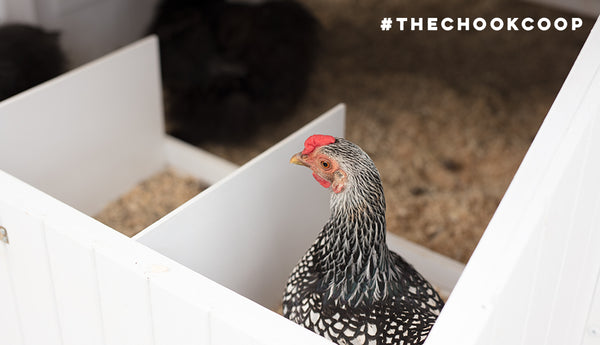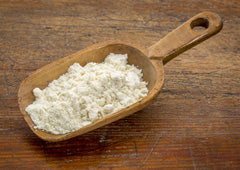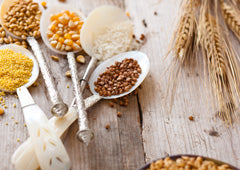A favourite amongst gardeners due to it’s multitude of uses, fragrant smell, and being super simple to grow, mint is a must have addition to your garden. There are many different mint varieties you can grow, some of the most popular include, spearmint, peppermint and white peppermint. Mint likes to be planted in deep, moist soil in a partly shaded area, however it will grow almost anywhere, even in the darkest corners of your garden bed! Because it is such a rapid grower, it needs to be tended to more often than other herbs to keep it from spreading, however this means you will never be short of mint!
Good for your Hens
Because mint (all types) is a natural incestide and rodent repellent, it is the perfect addition to your chickens nesting box mix, especially where baby chicks are involved. The newly hatched chicks will rub against the fresh herbs in their first few days of life which will help to impart them with protection from parasites and other nasties. Fresh mint coupled with basil, lemon balm, thyme, oregano, lavender and marigold is a great blend for your nesting boxes, and will keep them smelling fresh and sweet!
Good for your Garden
Mint plants can offer assistance to a number of neighbouring vegetables including beets, broccoli, brussel sprouts, cabbages, cauliflower, capsicum, eggplant, cabbage, kale and lettuce, with its oil providing an effective natural insect deterrent. Because of it’s quick spreading it does take more tending to than other herbs to ensure it doesn’t overrun your garden. Take advantage of this by mulching your beet plants with mint clippings, as this aids the growth of your beets!
Good for You
Known for keeping your mouth and breath minty fresh, mint also has a number of medicinal properties that go much further than helping to mask the garlic laden meal you had for lunch!
-
inhibits the release of histamines that causes allergies and hay fever
-
mint contains menthol which is a natural decongestant so helps with clearing up congestion in the nose, throat and lungs
-
improves oral health
-
promotes healthy digestion
-
effective remedy for nausea
Adding a little extra mint to your diet is easy (and delicious), and is a welcome addition to many drinks and dishes thanks to it’s fresh flavour. Adding mint leaves and cucumber to your water makes for a refreshing treat! Try adding mint to your favourite sweet and savoury dishes for a fresh and nutritious burst of flavour!
When working with herbs, there are a few simple rules to follow to keep your hens at the height of their health…
-
Some herbs will spoil very quickly, especially in summer, so be sure to refresh them every few days to really harness their goodness.
-
Remember! Treats in moderation-don’t overdo it. If you are unsure how much to give to your girls, it is best to check with your local vet.
-
Like with all herbal treatments each works differently based on the individual, and the same goes for chickens too. So keep this in mind and be sure to check for any reactions, allergies or particular dislikes.
From healthy diets to hygiene, we all want to do an eggcellent job when caring for our feathered friends. It's essential that you've got the right expertise you need to raise happy, healthy chooks. Did you know 67% of chicken keepers surveyed experienced a chicken health or behaviour issue in the first 12 months that they didn’t know how to handle?
But don’t worry! Our feathered friends over at Chickenpedia have created a Chicken Healthcare Course. It is a comprehensive online course that includes everything you need, including what to look for in an unhealthy chicken and how to support your egg-laying hens to flourish.
For optimal chicken health, you'll find yourself asking: What to feed, when to feed, how to feed and why?! With so many options, preparing nutritious mealtimes can be stressful and overwhelming. Many health issues experienced by our girls are due to an imbalanced diet.
Cluckily, Chickenpedia can help you find out what’s best for your flock at all ages. This is why I recommend their Feeding Peckish Chickens course to all my readers. Through their course, unearth nutrient rich foods to help your chickens stay healthy, live longer and produce the best eggs. Keep those yolks nice and yellow! The course shares advice and information on the best food for your flock as well as quantity control, storage, and timing for feeds. You will gain the confidence needed to choose the right chicken feed and know which ones to avoid.
Check out Chickenpedia today. As a member, you will also get access to the ALL of their chicken courses!


















